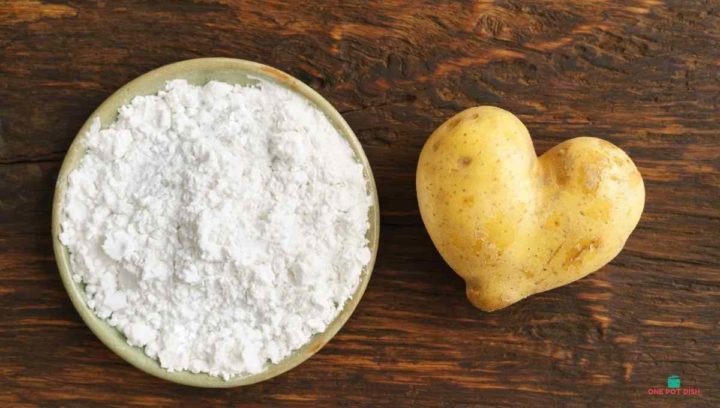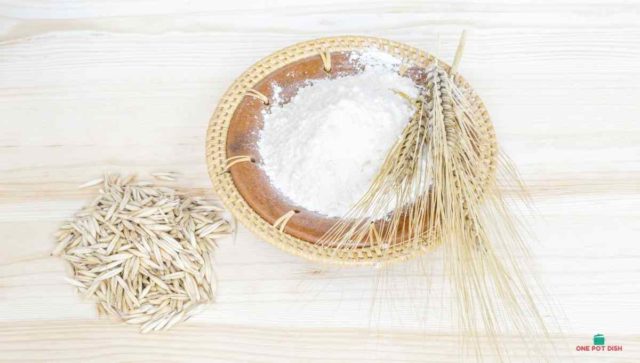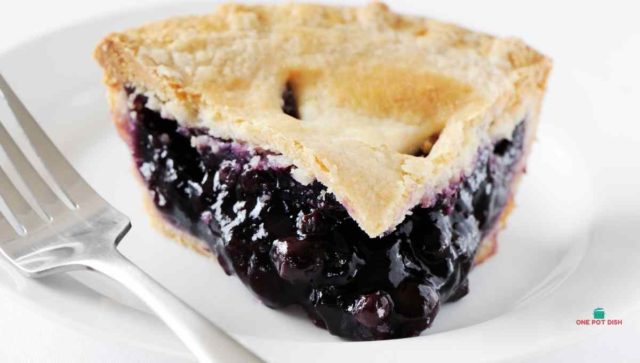Corn Flour Substitutes
Corn flour, often known as maize flour, is a finely powdered powder prepared by drying corn kernels, usually the white ones.
The corn flour made from this process is gluten-free, which makes it excellent for gluten-free baking, cooking, and meals.
Corn flour is very versatile, since it may be used in all aspects of food production and thickening.
Although corn flour is convenient, you may be wondering happens you run out, or just need to find a corn flour alternative.
Fortunately, there are several decent corn or maize flour substitutes:
So, whether you’re short of corn flour, attempting to avoid certain components, or the supermarket seems to be out of inventory do not worry here are the top 11 substitutes for 2024
Some of these substitutes may vary from corn flour, particularly as it relates to gluten-free cooking, but a couple of them may be used interchangeably in any of your favorite grain recipes as a one-to-one replacement.
1. Cornstarch
Cornstarch is the simplest substitution on our list, although many people mistake it with corn flour because of its similar powdery feel.
Because it’s created from the starch component of the corn, it’s gluten-free, making it an excellent alternative for corn flour, particularly as a thickener.
Cornstarch should be used in place of corn flour at a 1:1 ratio. If your recipe calls for one tbsp of corn flour, replace it with one tbsp of cornstarch.
To use cornstarch to thicken your recipes, combine it with just a little cool water to make a paste and prevent the ingredients from sticking together.
Corn Flour vs Cornstarch
2. Can I Use Potato Flour as A Substitute for Corn Flour
One of the benefits of using Potato flour, like cornstarch it doesn’t contain gluten and can be used as a replacement for certain gluten-free recipes.

Baking, thickening soups, sauces, and gravies, and coating veggies, fish, and meat-based foods are all good uses of potato flour.
Potato flour is usually employed towards the end of the cooking method, compared to corn flour.
Potato Flour vs Corn Flour
Potato Flour will absorb moisture far quicker than corn flour, plus it thickens the soup, sauce, or stew faster also. Another difference is if it is heated for a long time its thickening power decreases.
The ratio to use is a 1: 1 amount.
3. Flour Bread or All-Purpose Flour
All-purpose flour is manufactured from wheat grains that have been milled, refined, and bleached. It is a culinary staple and almost all pantries have some.
All-purpose flour is cheap, simple to come by, and adaptable. It’s often used in baking sweets and bread, thickening sauces and soups, and coating fried meals like deep-fried chicken.
Which Is Has More Thickening Power Corn Starch or All-Purpose Flour?
Corn starch is a more powerful thickening agent. You will need to use twice as much All-purpose flour as cornstarch.

4. Rice Flour
Rice flour is often used as a substitute for corn flour in sweet making. It’s also popular in Asian cuisine for thickening dishes like Indonesian Curries.
It is also gluten-free.
Its thickening power is not as strong as the others and you may need to use up to twice as much for the same result.
5. Wheat Flour
Wheat-based flour is quite versatile, since it may serve as a useful thickening agent, in baking, and even in frying.
However, if you’re substituting wheat flour for corn flour, please remember that it’s not gluten-free, therefore it’s not suited for gluten-free diets.
You will also need to use up to 2x the amount for thickening.
6. Ground or Powdered Flaxseed
Ground flaxseeds are another product that may be used as a corn flour alternative. The nutty taste of these little yellow seeds may be utilized as a thickening in your stews and meals.
7. Powdered Arrowroot
When you’re out of corn flour, Arrowroot powder is a good alternative. Plus, vs Cornflour is has a similar thickening power.
This arrowroot ingredient is popular among chefs all over the globe, and it is often used as a thickening factor in stews, puddings, and sauces.
8. Cornmeal
Despite the fact that the texture of cornmeal differs from that of maize flour, it is a fantastic substitute.
Cornmeal pairs well with recipes that need a little texture. Because it is certainly more coarse than flour.
Cornmeal is popular and used in a variety of baked items, including baked cakes, cornbread, and biscuits.
The texture also adds crunch to fried crispy chicken or mozzarella cheese crumbed sticks.
For each teaspoon of cornmeal, one teaspoon of corn flour should be substituted.

9. Tapioca Flour
Tapioca flour is a kind of tapioca that is used to thicken many of the foods we eat.
Tapioca flour has a wide range of applications. When a recipe asks for a thickening agent, it might be a perfect substitute for corn flour if you have any on hand. However it is best used in sauces, casseroles and the like, It is not so good in baking.
For thickening purposes, use equal quantities of tapioca flour and cornflour.
10. Guar Gum
Guar gum is a kind of gum that is used to make jellies and candies. It is an inexpensive thickening alternative to corn flour.
Guar gum is a very powerful thickening agent so you do not have to use it very much. Start by using only 1/8 of the amount. You will need to experiment a little.
11. Almond Flour
Almonds are a very nutritious food and their flour has a unique nutty taste that provides added delicacy to a variety of meals. However, in order to make the most of it and utilize it as a corn flour alternative, it must be put through a few processes.
Almond flour isn’t your standard milled flour in general. Instead, blanched almonds, that have also had the skins peeled and are crushed a little finer, are used. Because of this extra process, it ends up being quite an expensive alternative.
It can be used in a 1:1 ratio also.
12. Xanthan Gum
Xanthan gum is a kind of gum that is used to thicken and is very powerful, and while it can be used as a substitute for corn flour it is not as popular.
What to Use as A Corn Flour Frying Substitute
The best corn flour substitute to use for frying is all-purpose flour, it is cheap and is cooked has not taste.
You do have a wide range of choices though. Potato flour, tapioca, or self-rising flour are some of the finest frying substitutes if you do not have enough corn flour.
What Can I Use as A Substitute for Cornstarch in Sauces?
A tried-and-true corn flour substitute in sauces is to make a slurry using cornstarch and water, then pour the slurry into a cooking liquid.
You can also employ tapioca starch or arrowroot instead; just be sure to use the sauces straight away.
For Fruit Pie Fillings, What Can I Use Rather than Corn Flour?
Cornstarch is my preferred thickening for fruit pies, although all-purpose flour works well for many fruit-based recipes, just make sure you cook the flour fruit mix, otherwise you will be left with a flour taste.